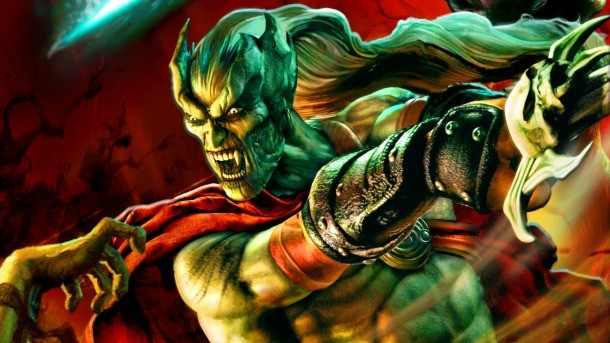Our extra-large special edition is here. Subscribe today and receive the 25% longer issue at no extra cost!
Opinion: How Not To Reboot Your Series

I started playing the Legacy of Kain series early on. I loved its overly dramatic voice acting, gothic atmosphere, and creative puzzles. For years I’ve been crossing my fingers and praying that Square Enix would announce a return to the series. Last week, Square Enix revealed a new game set inside the Legacy of Kain universe called Nosgoth. I wanted to cry…but not because I was happy.
When the first Legacy of Kain game released back in 1996, I immediately fell in love with its strong characters, creative environmental puzzles, suite of awesome vampiric powers, and haunting Medieval atmosphere. I didn’t mind when the franchise shifted away from its top-down Zelda-inspired RPG to the more action-focused titles of the Soul Reaver series, because those games retained what I loved about Legacy of Kain and were still a lot of fun.
However, Nosgoth is a multiplayer-focused shooter. We likely won’t see a lot of puzzles in the game, and we all know how well multiplayer shooters handle story. I don’t even trust Nosgoth to retain Legacy of Kain’s atmosphere, because from what I’ve seen from its early trailer, the game looks like it features the kind of generic gory goth that you see plastered on low-rent death metal albums.
Let me be clear about one thing: I don’t know if Nosgoth will be a bad game. I wish Psyonix the best in their efforts to make a game they can be proud of, and I honestly do hope it’s good. It’s just not the Legacy of Kain reboot I was hoping for, and I’m guessing that’s true for many fans.
Sadly, I see this happen with a lot of video game franchises. A series grows stale and sits on the shelf for a number of years before its owner decides to dust off the property with a new entry. However, the game’s more modern entry is drained of much of the magic that once made the series great.
A classic example is Shadowrun. The cyberpunk tabletop role-playing rule set was turned into an action role-playing games for both the SNES and Genesis, and both games became cult classics. However, fans never saw a sequel, so when Microsoft decided to relaunch the property in 2007, it turned the series into an online shooter – which not only stripped the series of its strategic combat and RPG elements, but also diluted the series’ Blade Runner-inspired atmosphere. Unsurprisingly, the game was not received well.
I understand that modernizing a franchise is challenging. Older conventions that worked when a series was first created may not hold up years later. The fixed camera and tank-like controls of the early Resident Evil games were forgivable on the original PlayStation when games were still trying to figure out how to navigate 3D space, but as the industry continued to evolve, it was necessary for Resident Evil 4 to switch to an over-the-shoulder/third-person-shooter style of gameplay.
I believe that nearly any series can be modernized. Series like Metal Gear, Zelda, Metroid, Final Fantasy, Prince of Persia, and Grand Theft Auto were all rooted in 2D gameplay at one point, but these franchises continued to evolve with the times and are even thriving today. On the other hand, games like Pac-Man Championship Edition, Rayman Origins, XCOM: Enemy Unknown, and Mega Man 9 also prove that old gameplay holds up better than we might think, so a series might not have to change as drastically as a developer thinks in order for it to succeed on a modern market.
Let’s go back to our Shadowrun example. When Harebrained Schemes announced that they wanted to relaunch the Shadowrun series as a strategy/RPG in the vein of the 16-bit classics via Kickstarter, the response was fanatical, and the developer raised more than four times the amount they had originally asked for. The game they released wasn’t constrained to the conventions of games from two decades ago, either. Shadowrun Returns felt like a modern game in the style of the ‘90s classic, which is what fans had wanted all along.
The lesson here is that if you’re going to relaunch a series, don’t alienate the fan base you once had by removing the core elements that made the game appeal to them in the first place. I’d love to see modern reboots to some of my personal favorites like Conker’s Bad Fur Day, Parasite Eve, and Crash Bandicoot, but not if the companies that make them fail to understand why those games were entertaining the first place. If you’re going to reboot a series, don’t try to exploit our enthusiasm for a franchise by slapping its name on a game that doesn’t fit the brand. But if you give us good reboot, we’ll stick with you for several sequels to come.

Get the Game Informer Print Edition!
Explore your favorite games in premium print format, delivered to your door.
- 10 issues per year
- Only $4.80 per issue
- Full digital magazine archive access
- Since 1991







